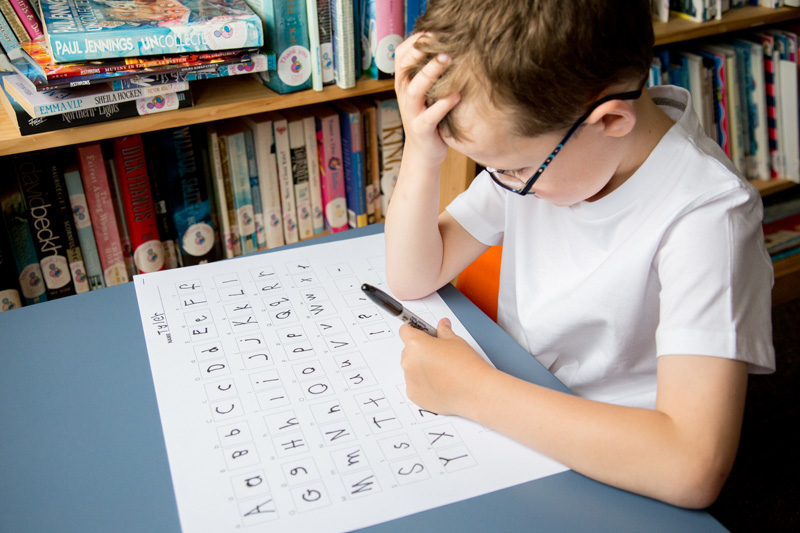How Late Effects From Cancer Treatment Can Affect Your Child's Learning & Development
How Late Effects From Cancer Treatment Can Affect Your Child's Learning & Development
Some children who have cancer treatment will have a harder time learning in school than their classmates. Find out about late effects from cancer treatment which may impact your child's learning.
Key points to remember about how late effects can affect your child's learning and development
- some cancer treatments can cause health problems that may not happen until many years after treatment has finished
- these health problems are often called 'late effects'
- parents need to be aware that cancer treatment may have long-term effects on their child's learning

How will my child's learning and development be affected by their cancer treatment?
The kind of side effects your child has will depend on the type of cancer they have and the treatment they receive. Treatments such as chemotherapy and radiotherapy damage normal cells as well as cancerous ones.
In many cases side effects are temporary, but for some children, there can be long-term physical effects or 'late effects'.
What is the Late Effects Assessment Programme?
The Late Effects Assessment Programme (LEAP) provides regular assessment and monitoring for all survivors of childhood cancer throughout New Zealand. Depending on where you live, your child may visit a dedicated LEAP clinic or see a specialist at your local hospital. Both types of clinics provide the same key follow-up care.
Your child may be asked about their thinking and learning (cognitive) ability, and if there are any concerns, a further assessment may happen. This is called a neuropsychological assessment. Talk to your child's healthcare team if you are concerned.
Find out more about the Late Effects Assessment Programme.
What is cranial irradiation and how can it affect my child's learning?
Cranial irradiation is a type of radiation therapy for brain tumours and some high-risk forms of leukaemia. It carries an increased risk of learning problems for children. Some children have issues with areas such as:
- visual-motor skills
- memory
- attention span
- motor skills
What are some of the common learning difficulties after cranial irradiation?
Common difficulties include problems with:
- reading
- spelling
- handwriting (unable to write accurately or quickly)
- mathematics with concepts requiring short-term memory such as times tables
- attention span or concentration - children may become hyperactive or inattentive
- short-term memory-storage of new information and learning difficulties
If your child has had cranial irradiation treatment, they may benefit from a neuropsychological evaluation. Your child may need another evaluation to check whether their learning problems have changed over time. Good assessment and appropriate intervention will help minimise the impact on your child's ability to learn.
Will my child's cancer treatment cause any other physical problems?
There may be long-term physical effects of childhood cancer and its treatment. Some of these may be found well after treatment has finished. They may include:
- delayed growth and early or late puberty
- hearing damage
- infertility
- heart damage
- lung problems
- dental problems
- kidney problems
- eye problems
Talk with your family doctor or your child's healthcare team if you are concerned.
Find out more about treatments for childhood cancer.
Will my child's cancer treatment cause any psychological effects?
Survivors of childhood cancer may have a slightly increased risk of developing another cancer later in life. Learning to live with the worry of cancer returning (or developing another cancer) is a challenge for these children and their families.
Survivors and siblings often need emotional support after treatment. Discuss any changes in behaviour with your child’s healthcare team during your clinic visits. Early assessment and intervention can help minimise any problems.
Organisations such as Kenzie's Gift, Child Cancer Foundation and CanTeen can also help with counselling support.
See more information for educators
This page last reviewed 21 April 2022.
Do you have any feedback for KidsHealth?
If you have any feedback about the KidsHealth website, or have a suggestion for new content, please get in touch with us.
Email us now